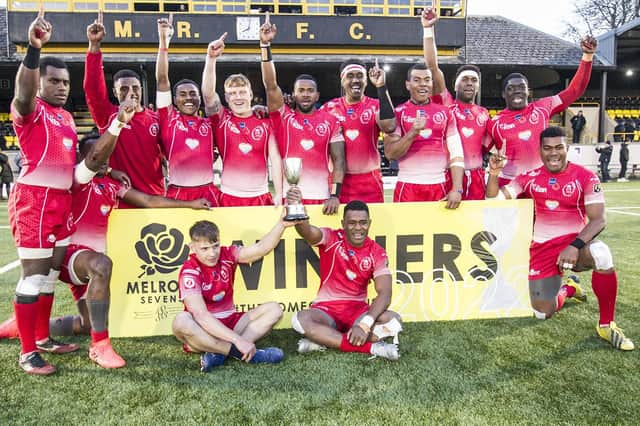The latest winners of the near-140-year-old tournament were a British Army side returning after featuring at the last sevens at the Greenyards in 2019.
The soldiers, with Isoa Damu, a former Fijian international at sevens, as head coach, saw off fellow invitational side Samurai 26-14 in the final to pick up the cup on Saturday night.
Coached by ex-Selkirk full-back Fraser Harkness and featuring another erstwhile Souters star among their ranks, Callum Marshall, Samurai were hoping for their first win at Melrose in their 26-year history after beating three Borders sides on their way to the final but were outdone come the end of a day of rugby starting at 10.50am and not wrapping up until nearly 8pm.
It was also a case of close but no cigar for hosts Melrose, looking to win the cup for the 13th time overall and first time since 2011, as they were among the teams put to the sword by Samurai, going down 24-14 in their semi-final.
To get that far, they beat Aberdeen Grammar 43-0 in the contest’s second round, having been given a first-round bye, and the Belgian national side 14-10 in the quarter-finals.
The other Borders sides knocked out by Samurai were Gala 43-0 in the second round, after the Netherdale outfit had edged out Glasgow Hutchesons’ Aloysians 24-22 in the first round, and Jed-Forest 33-21 in the quarter-finals.
Hawick, Kelso and Peebles all went out at the first-round stage, losing 40-7 to Stirling County, 31-5 to invitational side Co-optimists and 20-14 to Aberdeen Grammar respectively.
Selkirk progressed to round two by beating Ayr 33-5 but lost 22-5 to Co-optimists that time round.
Jed-Forest beat Edinburgh Accies 42-14 in the first round and 2019 winners London Scottish 33-24 in the second round to set up their last-eight meeting with Samurai.
The quarter-finals also saw former Southern Knights winger Freddie Owsley, playing for Co-optimists, shown only the second red card ever in the history of the tournament during their 17-5 loss to Currie Chieftains.
“It’s not an easy tournament, especially from the quarter-finals onwards, when it gets really tough, but we managed to get going from the first game,” Damu told the Offside Line rugby news website after his side’s final victory.
“I’m really pleased because this is our first tournament of the year and we only got together this week.
“They have come together from all over Britain, and Cyprus, Germany and all over Europe, and they don’t play a lot of rugby outside the sevens season, but they have talent, as they showed today.
“We were here two years ago so the boys know how big a tournament it is, and they are all very excited to be here. They understand how big a tournament this is and I’m just glad that they showed that with the way they performed.”
The Borders sides and two of their Edinburgh adversaries taking part were also competing for Kings of the 7s points, with Melrose picking up five and their Jedburgh rivals three.
That puts Melrose in front on 18 points after three rounds and Jed-Forest second on 13, followed by Hawick and Gala tying for third place with eight and Selkirk in fifth place with seven.
Kelso are seventh with five and Peebles eighth with three.
See also …
Coached by ex-Selkirk full-back Fraser Harkness and featuring another erstwhile Souters star among their ranks, Callum Marshall, Samurai were hoping for their first win at Melrose in their 26-year history after beating three Borders sides on their way to the final but were outdone come the end of a day of rugby starting at 10.50am and not wrapping up until nearly 8pm.
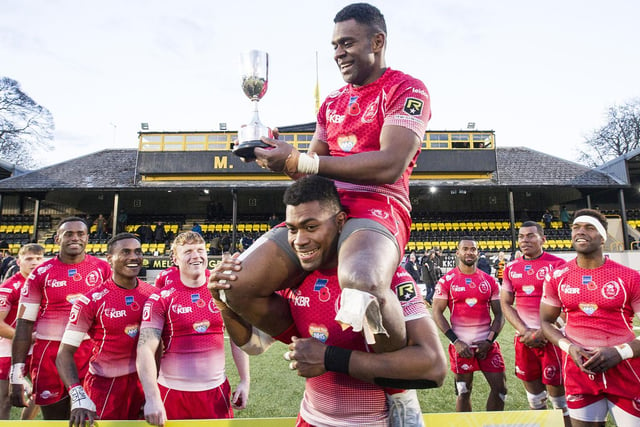
5. Melrose 7s 2022
British Army players Alosio Vereimi and Rupeni Rokoduguni lifting the 1883 Centenary Cup at 2022's Melrose Sevens Photo: Bill McBurnie
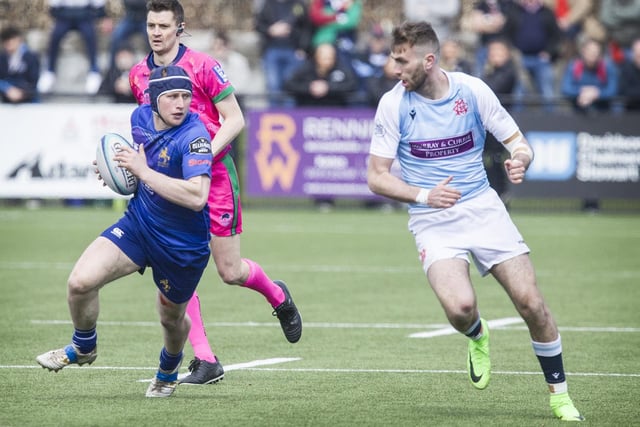
6. Melrose 7s
Finlay Scott on the ball for Jed-Forest against Edinburgh Accies at Melrose Sevens Photo: Bill McBurnie
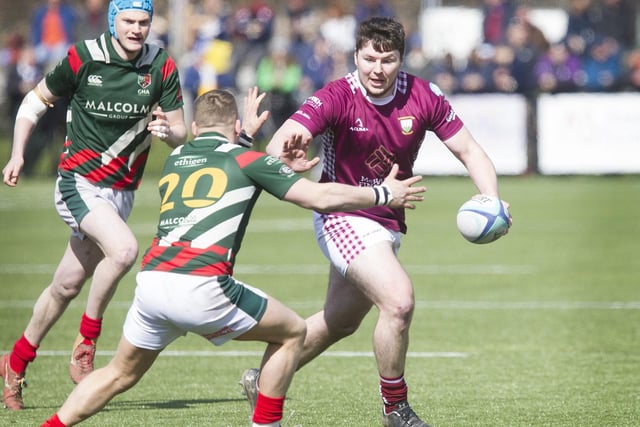
7. Melrose 7s 2022
Tim Kavanagh in possession for Gala against GHA at Melrose Sevens Photo: Bill McBurnie
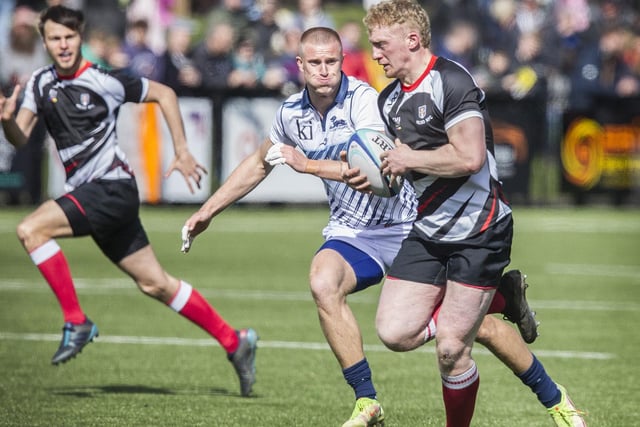
8. Melrose 7s 2022
Ben Lyall making his Melrose Sevens debut for Kelso against Co-optimists Photo: Bill McBurnie
